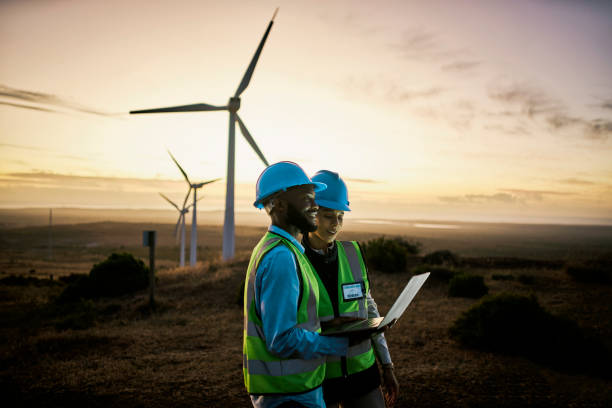African construction companies and low emissions are increasingly becoming focal points in the continent’s sustainability agenda. As the world grapples with climate change, African nations are also pulling their weight in reducing carbon emissions. The construction industry, known for being a significant emitter of greenhouse gases, is under particular scrutiny.
According to the Africa Carbon Markets Initiative Roadmap Report, the sector has a critical role in achieving the continent’s climate goals. But what steps are African construction companies taking to tackle this issue?
Carbon emissions and the construction industry
The construction industry has long been a cornerstone of economic development, but it comes with a significant environmental cost. According to various reports, the construction industry accounts for about 38% of CO2 emissions globally.
Data cited in various carbon footprints in the construction industry PDF reports indicate that in Africa, these numbers could rise with increased urbanisation and infrastructure projects. This grim picture is corroborated by the statistic that buildings generate nearly 40% of annual global CO2 emissions.
In Africa, where rapid urbanisation and infrastructure development are in full swing, the need for eco-friendly practices in construction is more pressing than ever. African construction companies are not sitting idly by; they are taking proactive steps to reduce low emissions, aligning with global initiatives and innovative strategies such as the African Carbon Markets Initiative.
African construction companies and low emissions
To address the challenges, several African countries are part of the African Carbon Markets Initiative (ACMI). The initiative aims to develop a structured approach to reducing emissions through various Africa carbon projects. By focusing on sectors like construction, the ACMI Carbon Market is creating incentives for companies to adopt low-emission technologies and practices.
Reducing carbon footprint
In recent years, African construction companies have taken a multi-faceted approach to diminish their carbon footprint. This section will delve into some of the ground-breaking strategies and innovations that are helping the industry align with the Africa Carbon Markets Initiative’s guidelines for a more sustainable future.
Energy efficiency in building design
One key focus area is how to reduce carbon emissions from buildings. Companies are increasingly integrating energy-efficient features into their building designs, a measure highly recommended in the Africa Carbon Markets Initiative Roadmap Report. The implementation of solar panels and other renewable energy sources are increasingly common in new construction projects.
Use of sustainable building materials
The carbon footprint of building materials is another significant concern. African construction firms are sourcing sustainable, locally-produced materials to reduce transportation emissions and overall carbon footprint. Companies are also embracing recycled materials, which aligns with recommendations from Africa carbon partners.
Voluntary carbon credits market
In addition to these tangible measures, the Africa Voluntary Carbon Credits Market is gaining traction. Companies can purchase credits, essentially investing in green projects to offset their emissions. This mechanism creates a financial incentive for reducing one’s carbon footprint and is facilitated through the Africa Carbon Markets Initiative website.
Collaborative partnerships for a greener future
Strategic collaborations are forming between construction companies, policymakers, and Africa carbon partners. The aim is to accelerate the development and implementation of low-emission technologies. These partnerships could be the linchpin in reaching the targets set in various Africa carbon projects.
A glimpse into the future: ACMI’s impact
The Africa Carbon Markets Initiative Roadmap Report outlines the future trajectory of carbon reduction strategies in African countries. Construction companies are at the forefront of this change, adopting advanced technologies and practices that resonate with global standards. With concerted effort, the construction industry’s emissions percentage could see a significant decrease in the coming years.
Time for action
As Africa’s construction sector grows, its responsibility to the planet does too. African construction companies are waking up to this reality and leveraging resources like the Africa Carbon Markets Initiative website for actionable insights. Through the ACMI carbon market and various innovative strategies, the continent is making headway in its quest for a sustainable future.
The journey to reducing the construction industry’s carbon footprint is a collective effort. It’s a road paved with challenges, but as the saying goes, “If you want to go fast, go alone. If you want to go far, go together.” For Africa, the aim is clear: to go far in safeguarding the planet while fostering development.
With various Africa carbon projects underway and a solid framework provided by the African Carbon Markets Initiative, there’s a green light at the end of the tunnel. The construction industry has begun its transition, and the momentum must be maintained for Africa to meet its carbon reduction goals.
